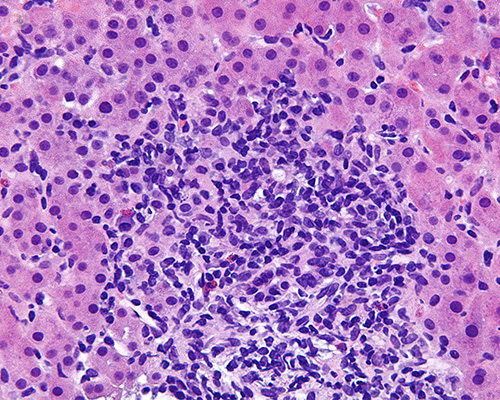Importance of detecting and treating autoimmune hepatitis
Written by:The liver is a fundamental organ for the proper functioning of our organism. Among its main functions is to purify substances that our own body generates and that can be toxic, and processes the products that have been absorbed in the digestion so that they can be used by our organism. Many medicines that we consume are also processed and purified by the liver, but this not only purifies, it is also responsible for producing many proteins essential for the proper functioning of our organism, such as coagulation factors. Finally, it contributes to digestion by making bile, which will facilitate intestinal absorption, especially of fats.

Liver diseases: how they are produced and how they are distinguished
The mechanisms that can damage the liver are varied. On the one hand, there are infections that can affect the liver and among these, the most known would be viral hepatitis (A, B, C). The liver can also be damaged by the consumption of toxics, especially by the excessive consumption of alcohol or by some medicines. Sometimes it is also damaged by the accumulation of substances that are deposited in it, such as iron or copper. The accumulation of fat in the liver may, in some people, end up developing problems. It is not a frequent situation but, if the liver does not get enough blood, it will not work well (as it does to the brain or heart). On the liver can develop a cancer or appear metastasis of cancer originating in another organ. And, a separate chapter, would be the immunological diseases, among which the autoimmune hepatitis. As can be seen, the causes are very diverse.
Symptoms that alert you to liver disease
The patient with liver disease may refer to symptoms such as tiredness, yellow pigmentation of the skin and mucous membranes (jaundice), dark urine, etc.. Internal Medicine specialists should ask the patient about their toxic habits, drug use, or family history can guide us towards the source of the problem. The physical examination of the patient often reveals fundamental data that will help us in the diagnosis. Finally, the specialist in Internal Medicine will use complementary laboratory tests and imaging that should end up confirming what happens to our liver.
What is autoimmune hepatitis and how does it manifest itself in the patient?
Autoimmune hepatitis is a disease in which our own immune system attacks the liver. The immune system's function is to defend ourselves against external agents that can cause us diseases, such as viruses or bacteria. For this defense to be adequate, the first thing that must happen is for the immune system to clearly identify who is an enemy (external agent) and who is an ally (our own cells).
For reasons that are not entirely clear, the immune system is sometimes confused. In autoimmune hepatitis this confusion occurs with our hepatic cells, which are self-attacked, but there are many examples in other organs or structures of our body that are attacked, such as joints (rheumatoid arthritis), intestine (Crohn's disease), thyroid Autoimmune thyroiditis), etc.
The patient with autoimmune hepatitis may feel tired, sometimes jaundiced, and may even have lost his appetite. The symptoms are not very different from those of hepatitis caused by a virus. There may be data on the physical examination that make us suspect autoimmune hepatitis, but in general, the analyzes usually confirm that it is the disease.
Importance of treating autoimmune hepatitis
The treatment of autoimmune hepatitis aims, in a way, to block the immune system that is damaging the liver, and this is achieved with immunosuppressive drugs. It is very important to treat patients because, if this aggression to the liver by our immune system is perpetuated, it can end up triggering liver cirrhosis.
The response to medical treatment is usually very favorable shortly after starting it. However, treatment should be continued for several months to try to avoid relapses that may occur. In patients who relapse when treatment is stopped, it is probably reasonable to keep them with the least amount of medication that inactivates the disease.


